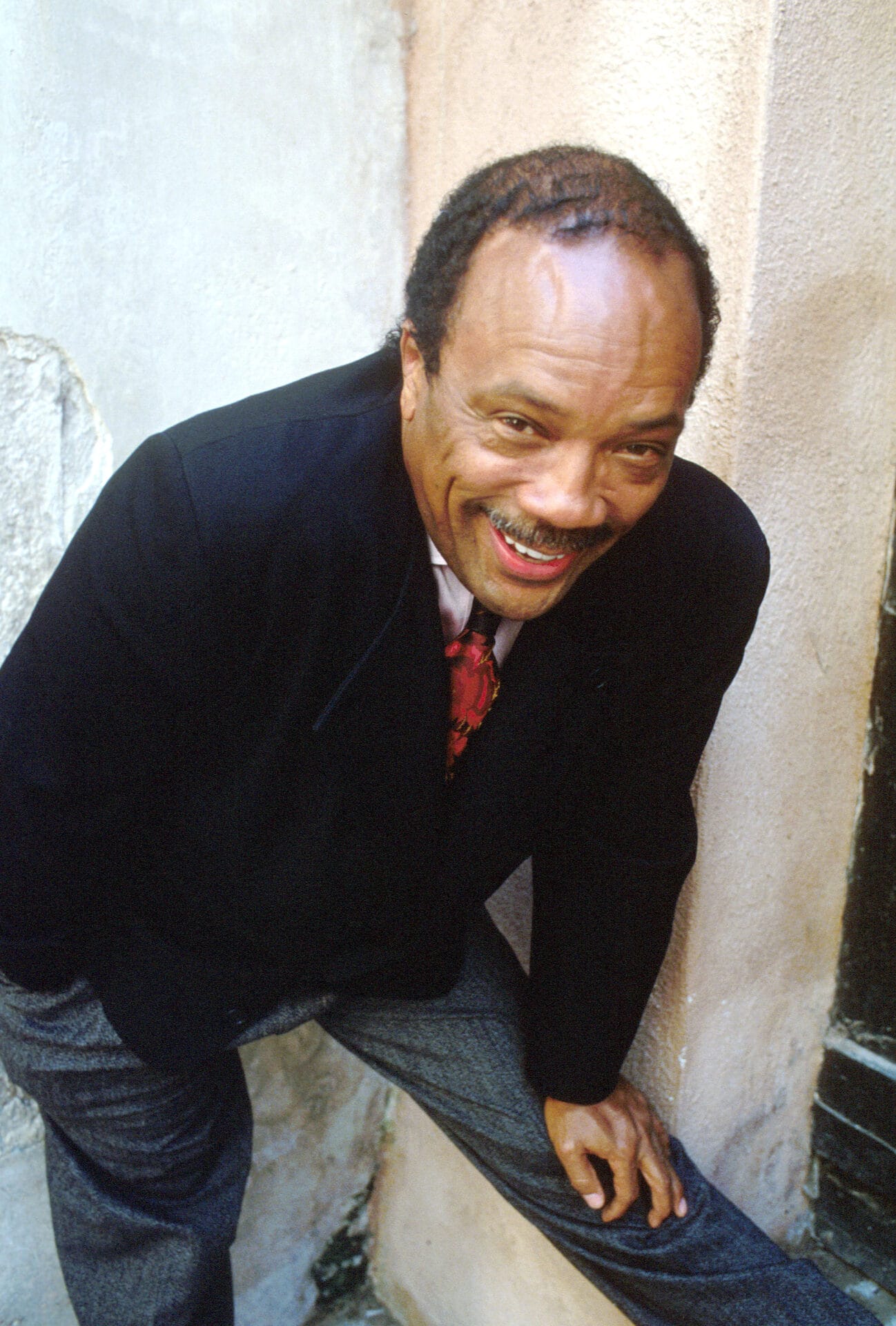Music Industry Titan Quincy Jones Passes Away at 91

“Quincy Jones” by Gorup de Besanez is licensed under CC BY-SA 3.0.
Quincy Jones, the multifaceted music producer, composer, bandleader, arranger, and artist perhaps best known for his work with Michael Jackson and other celebrated acts, has passed away. He was 91.
Jones’ passing was confirmed in a statement presented via his publicist, Arnold Robinson. Without mentioning the cause of death, the spokesman said, “Tonight, with full but broken hearts, we must share the news of our father and brother Quincy Jones’ passing. And although this is an incredible loss for our family, we celebrate the great life that he lived and know there will never be another like him.”
The statement continued, “He is truly one of a kind and we will miss him dearly; we take comfort and immense pride in knowing that the love and joy, that were the essence of his being, was shared with the world through all that he created. Through his music and his boundless love, Quincy Jones’ heart will beat for eternity.”
Quincy Delight Jones Jr. was born in Chicago on March 17, 1933. Jones spent his adolescence in the Midwest until the mid-1940s when his father’s career required the family to relocate to Washington state. There, Jones began developing his initial skills as an arranger and trumpet player, establishing his roots in jazz.
During the onset of adulthood, an 18-year-old Jones began his studies at Boston’s Berklee College of Music. By 19, Jones was recruited to join Lionel Hampton’s band, which led him to share the stage with jazz aficionados and international favorites: Frank Sinatra, Ray Charles and Elvis.
From early guidance under the leadership of others, Jones stepped out as a first-time band leader in 1953, assuming the octet’s role of co-maestro, a status shared with drummer Roy Haynes. Jones would inevitably serve as band director for Dizzy Gillespie’s State Dept.-sponsored big band while accepting positions at ABC-Paramount and the French label Barclay Records, under which Jones would form an in-house orchestra.
The previously mentioned ensemble would go on tour until financial strain led to the group’s demise and, subsequently, a new era for Jones, who took the role of vice president at Mercury in 1961. The role gave Jones opportunities to catapult pop singer Leslie Gore’s career and, in turn, his own.
Continuing his legacy with Charles, Jones arranged The Genius of Ray Charles and Genius + Soul Band and would garner his first Grammy in 1964 for his arrangement of “I Can’t Stop Loving You,” a Don Gibson country tune turned Charles hit. That same year, on an invitation from film director Sidney Lumet, Jones composed the music for The Pawnbroker–which would historically represent the first in nearly 40 scores made for major motion pictures.
The mid-60s continued to represent a hot streak for Jones’ career, teaming with Sinatra and arranging albums for Count Basie, including 1964’s It Might as Well Be Swing and 1966’s Sinatra at the Sands. By the decade’s end, Jones was riding on associated success with A&M Records, cutting nine studio albums for the label.
In 1975, Jones launched Qwest Productions, where he continued his professional relationship with Sinatra. By 1978, he was tasked with producing the soundtrack for The Wiz, a musical take on The Wizard of Oz starring Diana Ross and Michael Jackson. At the time, Jackson had just been signed to Epic Records as a solo artist–he tapped Jones for production advice about the forthcoming album–a conversation that would kick off a storied relationship between the pair.
Jones and Jackson would embark on a tenure steeped in success: a trio of multi-platinum-selling albums, including the still-unmatched Thriller, a staggering 18 top 10 pop hits, including 10 No. 1 singles, and four Grammy awards–taken home by Jones.
While Jackson rode a commercial stardom, Jones seized the opportunity to hit the studio for the 1985 recording of “We Are The World.” The latter included an all-star assemblage of talent, from Stevie Wonder and Bruce Springsteen to Bob Dylan and Willie Nelson. The benefit single sold an estimated 20 million copies globally, further cementing Jones’ gold status.
The mid-1980s also marked Jones’ debut as a film producer, which coincided with 1985’s The Color Purple, which earned 11 Oscar nominations, one for Jones’ scores. Qwest Records arrived the following year and signed acts such as George Benson, New Order, Tevin Campbell, and, for a short time, Sinatra. However, Jones remained the label’s standout due in part to Back on the Block, which pulled assistance from Miles Davis, Ray Charles, Ella Fitzgerald, Sarah Vaughan, and newcomers like Ice-T and Big Daddy Kane. This release garnered decorated status and a slew of awards.
Following the arrival of the 1993 Warner Bros. Miles and Quincy Live at Montreux, Jones continued to forge relationships with younger artists like Amy Winehouse, Usher, Snoop Dogg, Wyclef Jean, Three 6 Mafia, and Jennifer Hudson, and even cutting his teeth on the Weeknd’s 2022 LP, Dawn FM.
Jones delivered an autobiography, Q, in 2001. His daughter Rashida co-directed the documentary, Quincy, which was released in 2018. Jones is survived by his seven children.



















